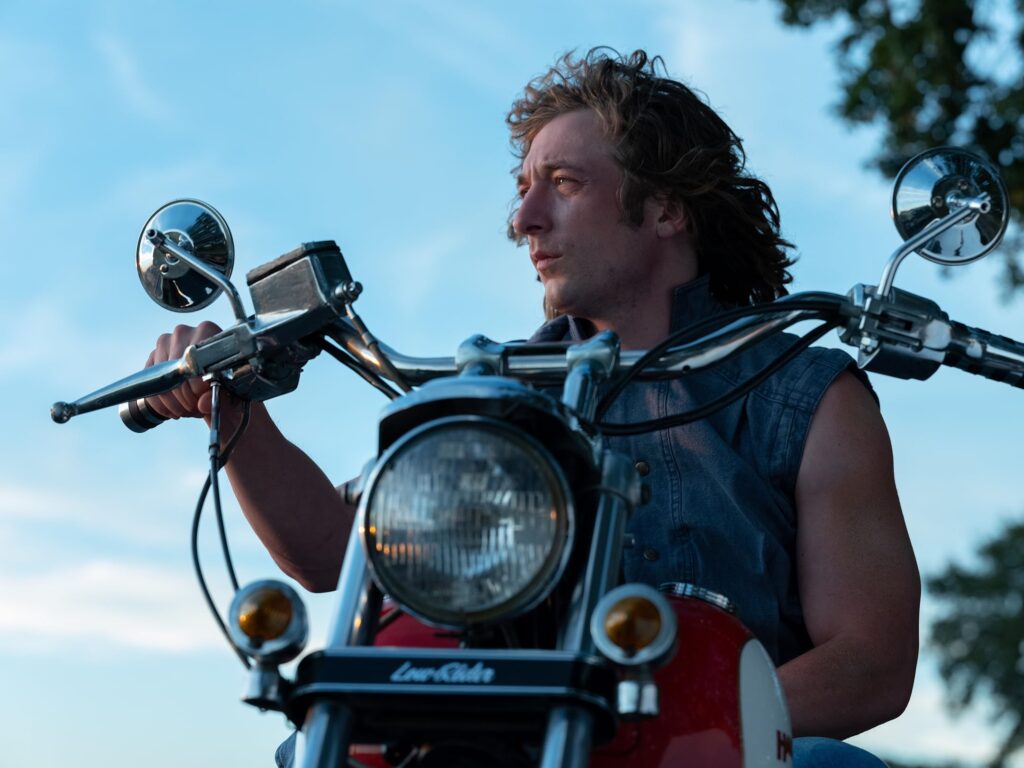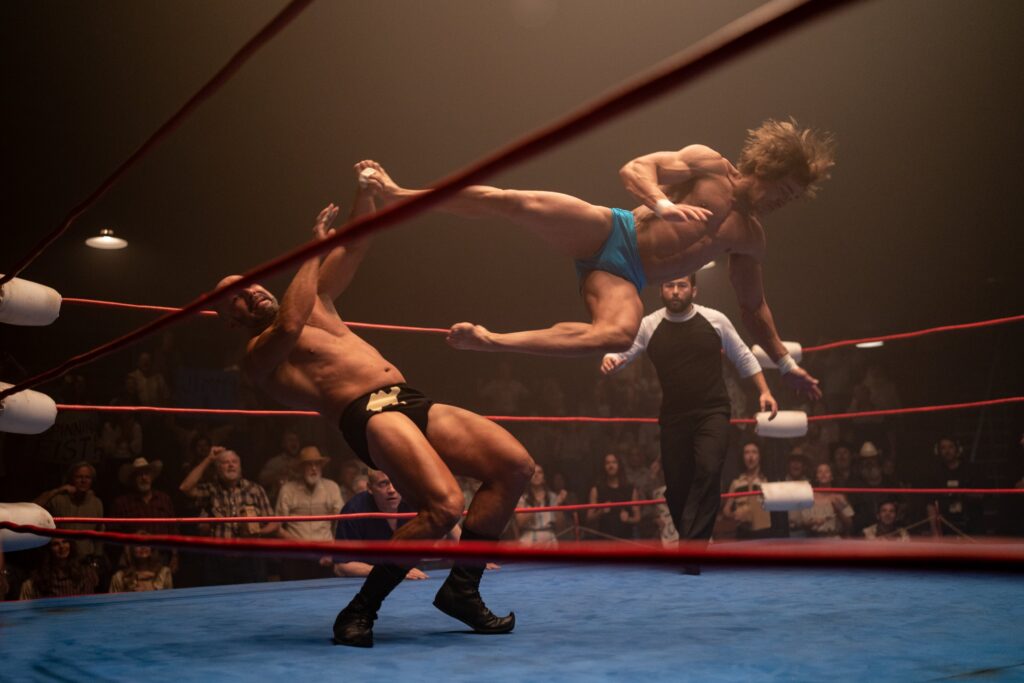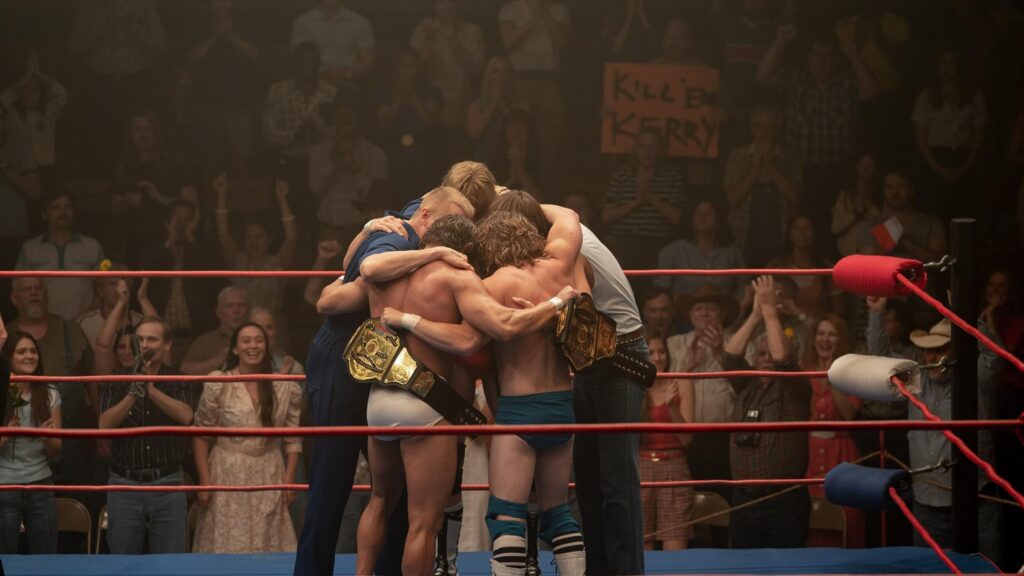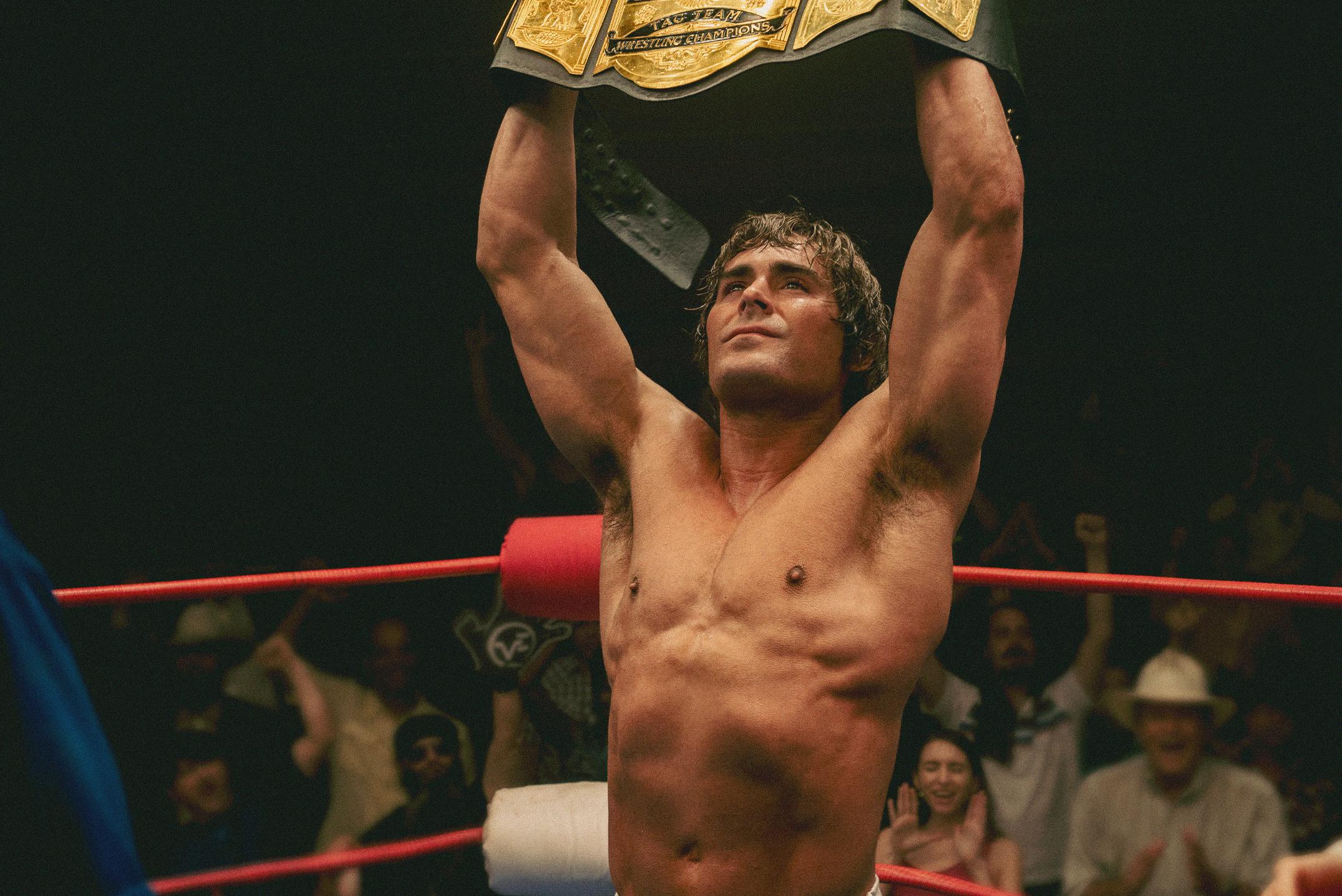We’re almost at the mid-point of February, and film releases tied to 2024 Oscars season are now winding down. One of the films tipped as a potential dark horse for the 2024 Awards season was The Iron Claw. The latest effort from Canadian director Sean Durkan, The Iron Claw is a. biopic about the Von Erich family of professional wrestlers. The film premiered in Dallas in November 2023, on the same day that the SAG-AFTRA strike ended. The Iron Claw was released in theatres in the United States the following month on December 22, 2023. It is now finally airing in cinemas across the UK and Ireland from today (February 9, 2024).
With The Iron Claw having received considerable buzz, there were hopes it could emulate Darren Arnofsky’s The Wrestler and earn several Oscar nominations. Unfortunately, The Iron Claw was one of several films alongside All of Us Strangers to be snubbed this awards season.
I had the opportunity to see The Iron Claw ahead of its UK release a few days ago. I am happy to report it is an excellent film and a worthy spiritual successor to Darren Arnofsky’s The Wrestler.

The Iron Claw opens with a brief prologue sequence set in 1965 and shot in glorious monochrome. Veteran wrestler Fritz Von Erich (Holt McCanally) is challenging Lou Thesz for the NWA Worlds Heavyweight Title at the Dallas Sportatorium. The top heel wrestler in his home territory of Southwest Sports, Fritz delivers a beatdown to the world champion. He eventually loses the match via disqualification after throwing the referee out of the ring. Fritz meets his wife Dorris (Maura Tierney) outside the Sportatorium, where he surprises her with a new Cadillac. Despite Dorris’ objection, Fritz justifies this purchase as a necessity if he is to be considered world championship material.
After this brief introduction, the movie jumps forward in time to 1979. In a monologue narrated by eldest son Kevin (Zac Effron), we learn Fritz has been retired for over a decade. Fritz and Dorris have purchased a ranch, and he has also purchased the Southwest Sports promotion from Ed McLemore. They have four sons: Kevin, Kerry (Jeremy Allen White), David (Harris Dickinson), and Mike (Stanley Simons) in their teens and twenties. Kerry is an accomplished discus thrower on the verge of competing in the 1980 Olympics. David is a slacker who lies about the Von Erich ranch, while Mike is still at school. Kevin meanwhile has followed in his father’s footsteps and become a professional wrestler.
The top babyface (the wrestling term for a fan favourite), David’s pro-wrestling career is rapidly on the rise. Early on in The Iron Claw, he wins World Class Championship Wrestling’s (the new name for Southwest Sports) top singles belt: the NWA Texas Heavyweight Championship. Despite this success at the regional level, Fritz has bigger plans for Kevin’s in-ring career. Fritz successfully lobbies for Kevin to challenge for the one belt that escaped Fritz during his career: the NWA Worlds Heavyweight Title!
The second Von Erich brother – David – makes his in-ring debut in WCCW teaming with Kevin against the makeshift duo of Gino Hernandez and world champion Harley Race. The Von Erichs win this match via disqualification, after Race attacks the referee. This attack is to set up Kevin’s future world title match against Race. It is David however who catches the attention of fans and Fritz alike after he cuts an impassioned in-ring promo.
The Russian invasion of Afghanistan in December 1979 results in the USA withdrawing from the 1980 Olympic Games in Moscow. This leaves the sporting career of Fritz’s third and favorite son – Kerry – in tatters. Fritz asks Kerry to join his brothers in the pro-wrestling business, an offer which Kerry willingly accepts. As a trio, the Von Erich brothers have a meteoric rise through the pro-wrestling industry. By 1983 Kevin, David, and Kerry are one of the top acts in the United States. In recognition of this success, David is rewarded by NWA President Sam Muchnick with a world championship match against then-champion Ric Flair.
Despite this meteoric rise within the industry, tragedy surrounds the Von Erich family. In the opening act of The Iron Claw, Kevin tells his wife Pam (Lily James) of the “Von Erich curse”. Throughout the two-hour runtime of The Iron Claw, director Sean Durkin explores this supposed curse. Without disclosing too much of the film’s plot, viewers get to see how drugs, suicide, and a culture of toxic masculinity tears the Von Erich family apart.

When watching The Iron Claw, the first thing that struck me was how authentic the in-ring scenes felt. Director Sean Durkin has a clear passion for this period of professional wrestling. This passion is reflected in little details such as the period-accurate TV graphics and promo packages that bookend the wrestling matches. These thirty-sixty-second interviews were used by promoters to sell tickets for live shows in their territory. The inclusion of these scenes provides non-wrestling fans with some much-needed context into the workings of the pro-wrestling industry.
Cinematographer Mátyás Erdély’s films the in-ring action up close to the point that you almost feel like you are in the ring with the Von Erich brothers. These extreme close-up camera shots work brilliantly alongside the film’s wrestling choreography. These two aspects of The Iron Claw’s presentation of wrestling give these fight scenes an authentic and intense feeling. At several points, I found myself almost forgetting I was watching a film, and rooting for Kerry, David, or Kevin to fight back when taking a beating from their opponents. So kudus to Mátyás Erdély’s and third-generation wrestler Chavo Guerrero Jr. for their work on The Iron Claw.

The Iron Claw’s other selling point is its cast. Holt McCannally is arguably the star of the show as the patriarchal Fritz Von Erich. McCannally perfectly conveys the toxic traits of Fritz Von Erich’s personality. One such trait is a long-standing resentment towards fellow NWA members for not backing him to hold the world title during his career. This resentment is the driving force behind Fritz’s actions throughout the film. It’s what leads to him playing his children off against one another for his approval. It’s also what causes his family’s lives to unravel. In many ways, McCannally’s portrayal of Fritz Von Erich is like something from a greek tragedy, and it no doubt owes a massive debut to Brian Cox’s performance as Logan Roy in HBO’s Succession.
While Holt McCannally is tremendous as Fritz Von Erich, the four actors playing his sons are almost as good. Zac Effron is great as Kevin Von Erich, and it’s good to see him get to showcase his dramatic chops. As Kevin, Zac Effron gets to play a young man haunted by the shadow of the “Von Erich Curse”. Jeremy Allen White gives another strong performance as Kerry, who he portrays as a stoic but increasingly troubled figure.
Perhaps the unsung hero of the entire film is Stanley Simons as the youngest Von Erich sibling: Mike Von Erich. Unlike his brothers who are all desperate to win their father’s approval through wrestling, Mike is reluctant to step into the squared circle. Mike has more of an artistic side, showing more interest in the production side of the business than wrestling itself. He also is a part of a high school rock band. Stanley Simons does a fantastic job portraying the introverted baby of the family. I felt incredibly moved by Simon’s performance in the second half of the film. During these scenes, audiences get to see Mike struggle to deal with the lofty expectations of his father and the weight of carrying the Von Erich name as he finally enters the ring.
While The Iron Claw does an excellent job of giving audiences a glimpse into the world of 1980s professional wrestling, I did have a couple of minor issues with it. My biggest complaint about The Iron Claw is that it never really provides historical context for non-wrestling fans. In particular, the film never really explains why Fritz is so obsessed with having possession of the NWA Title.
To provide some context, the NWA – the National Wrestling Alliance – was a governing body established in 1948. Originally the organization was a co-operative body consisting of 13 members who united to recognise one singular world heavyweight champion. The explosion in TV ownership in the 1950s saw NWA membership rapidly expand. Promoters across the United States coalesced around the NWA Champion as the “true” world heavyweight champion. By the time of the events of The Iron Claw, there were dozens of regional NWA territories across the globe.
Membership offered promoters in smaller-sized territories access to the NWA Champion, and a chance to draw a huge paid crowd. Yet the process of deciding who would be the NWA Worlds Heavyweight Champion was highly political under president Sam Muchnick. NWA members would typically meet up once a year, and agree upon the dates/locations of NWA World Title changes. The Iron Claw never really clearly explains the mechanics behind how the NWA operates. It instead vaguely alludes to Sam Muchnick being a shady figure, deliberately holding down smaller territories for his gain. Discussing the internal politics of the National Wrestling Alliance in the 1980s could make for a ten-part TV miniseries. Nonetheless I feel The Iron Claw could have done more to explain this aspect of the story better for non-wrestling fans.
The other piece of historical context The Iron Claw fails to give viewers is the cultural significance of the Von Erichs to the Dallas area. At their peak, David, Kevin, and Kerry Von Erich were rock stars in Texas. Their popularity in the Dallas area was akin to Beatlemania and saw WCCW fill Cowboys Stadium with 30,000 fans in 1984. The Iron Claw never really mentions this. The only interaction we see the Von Erich kids have with fans is when Kevin first meets his wife Pam. While I appreciate director Sean Durkan wanted to focus more on the relationships with the Von Erich family, I feel this was something that deserved inclusion in the film.
Despite these minor issues, The Iron Claw is a moving and entertaining biopic. It does justice to one of wrestling’s most historically significant families, providing an insight into the destructiveness of resentment and male ego. It also counters this toxic masculinity, showing the value of brotherhood, and that it’s OK for men to show emotion. And with a procession of great performances from its ensemble cast, this is one film you won’t want to tap out from!
